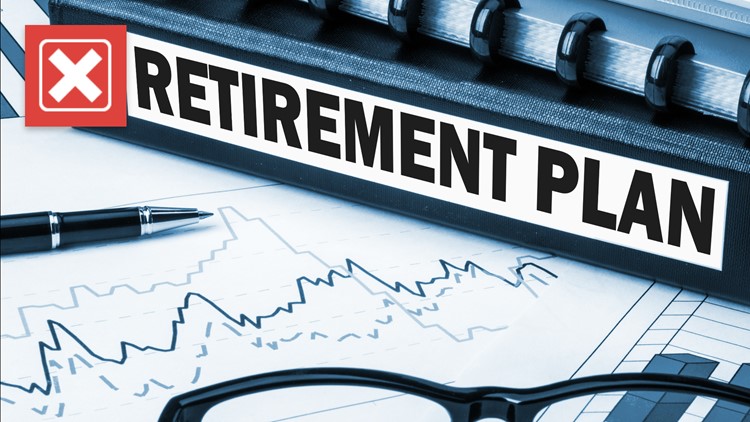Here’s what Biden’s veto of legislation centered on environmental, social and governance factors means for retirement plans.


President Joe Biden issued the first veto of his presidency on Monday, March 20, protecting his administration’s rule about investment choices for retirement plans.
The current Department of Labor rule allows retirement fund managers to take into account environmental, social and governance (ESG) factors when making investment choices.
Some lawmakers, including Sen. Ted Cruz (R-Tx.) and House Speaker Kevin McCarthy (R-Calif.), have claimed Biden’s veto of Congressional legislation allows financial institutions to prioritize “woke” political goals over Americans’ financial security. The legislation passed in both the Republican-controlled House and Democratic-majority Senate before Biden vetoed it.
A VERIFY reader asked if Biden’s veto requires pensions to be invested in ESG funds.
THE QUESTION
Does President Biden’s veto require pensions to be invested in ESG funds?
THE SOURCES
- U.S. Department of Labor (DOL) regulation
- Timothy Hauser, deputy assistant secretary for program operations of the DOL’s Employee Benefits Security Administration
- Alana Benson, investing writer with NerdWallet specializing in ESG and socially responsible investing
- American Retirement Association, a nonprofit professional organization
THE ANSWER
![]()
No, Biden’s veto does not require pensions to be invested in ESG funds.
The veto preserved a Biden administration rule that allows private-sector retirement plan managers to consider ESG factors in their investment choices, but they aren’t required to do so.
WHAT WE FOUND
A Biden administration rule allows managers of private-sector retirement plans to consider environmental, social and governance (ESG) factors when making investment decisions, but it’s not a requirement, the nonprofit American Retirement Association (ARA) and other experts told VERIFY.
ESG factors are a set of criteria used to evaluate investments, according to NerdWallet investing writer Alana Benson. This framework allows investors to “gauge an investment’s risk in the face of climate change and other modern challenges,” she said.
An ESG score is a “measure of how well a company addresses risks with respect to environmental, social and governance issues in its day-to-day work and operations,” Jason Krychiw, an ESG consultant for Conservice, explains in a blog post. These issues include topics such as climate change adaptation, energy efficiency, employee wellbeing, and diversity, equity and inclusion, among others.
A regulation from the U.S. Department of Labor (DOL), which took effect under the Biden administration in January 2023, reversed a Trump-era rule that required retirement fund managers to base investment decisions only on what would bring in the highest financial returns, and not other factors such as ESG criteria, Benson explained.
Congress passed a bill that overturned the ESG consideration rule, but after Biden’s veto, the rule still stands.
The current rule clarifies that retirement plan managers can consider ESG factors in their investment choices, but they aren’t required to do so, Timothy Hauser with the DOL’s Employee Benefits Security Administration said during a February interview.
Retirement fund managers are still obligated to uphold their fiduciary duty, “meaning that they must choose investments based on the best interests of their clients,” Benson explained.
“So if ESG investments are not the best choice, fund managers won’t choose them,” she said.
So what does this rule mean for you? Benson explained that most people don’t have control over what their 401K or retirement plan is invested in, though this may vary based on the fund manager or brokerage.
“But if you don't want to be invested in ESG investments – or any other type of investment for that matter – and you are concerned that you might be through your workplace retirement account, it doesn't hurt to call your fund manager and ask and see if you can exclude those from your plan,” Benson said.
The VERIFY team works to separate fact from fiction so that you can understand what is true and false. Please consider subscribing to our daily newsletter, text alerts and our YouTube channel. You can also follow us on Snapchat, Twitter, Instagram, Facebook and TikTok. Learn More »
Follow Us
Want something VERIFIED?
Text: 202-410-8808
.png)









 English (US) ·
English (US) ·